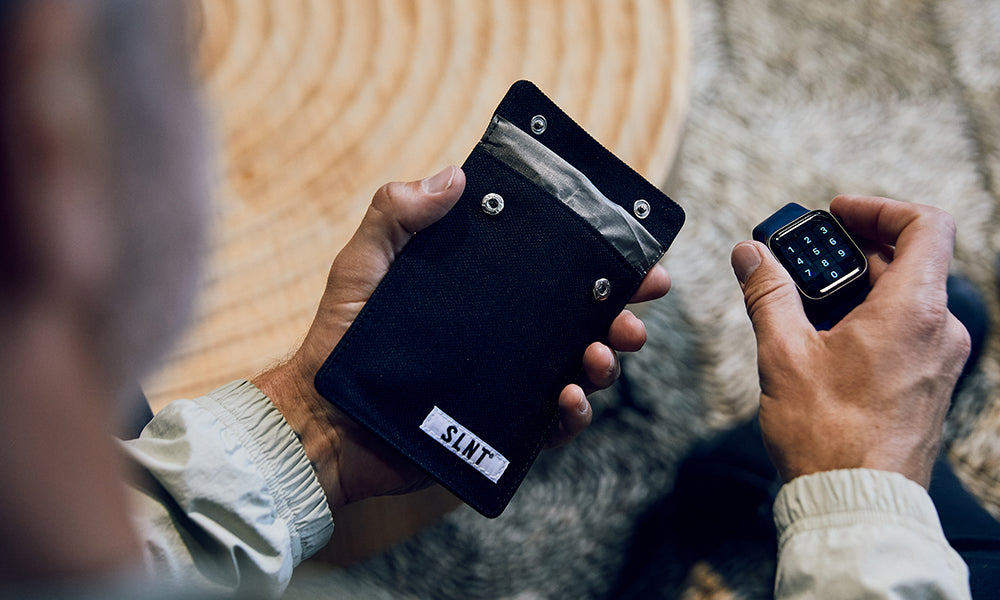Shop
Is Your Smartwatch Tracking You? Understanding the Privacy Implications of Wearable Tech

Wearable technology like smartwatches and fitness trackers have started popping up everywhere. They're cool, right? I mean, from keeping tabs on our health to having a mini smartphone right on our wrist — pretty neat, actually.
When Apple introduced its most recent smartwatch two years ago, CEO Tim Cook was insistent on highlighting the transformative advantages of the new device and emphasized Apple's strong interest in venturing into the health and fitness sector.
In a set of slick modern ads promoting the company's newest products, an individual recounted how the watch automatically dialed emergency services when they fell while running, while a pregnant woman shared how the device's ability to monitor her heart rate not only saved her life but also her baby's.
Apple asserts that the watch's heart-rate sensor can assist users and healthcare professionals in identifying early signs of cardiovascular issues. According to the company's website, the Apple Watch offers powerful applications that make it a quintessential device for maintaining a healthy lifestyle.
In an interview with the "Outside" podcast, Cook expressed his desire to democratize the field of health science by enabling millions of customers to contribute their data anonymously to researchers.
But hold on a second, as we hype up all these advancements in wearable technology, let's not forget there's a flip side begging for attention - our privacy. With all this fancy tech stuff, are we accidentally handing over our personal info without realizing it? And the big question is, are all these snazzy benefits worth the potential risks? We've just scratched the surface on wearable tech, there's way more nitty-gritty stuff we've got to dig into.
The Growing Popularity of Wearable Tech
Wearable tech has become an integral part of our lives, serving as both functional accessories and fashion statements. With advancements in technology, these devices have become smaller, more powerful, and increasingly interconnected with our smartphones and other smart devices.
Smartwatches, for example, can track our heart rate, sleep patterns, and physical activity. They can also receive and send messages, control music playback, and provide real-time updates on weather, sports scores, and other personalized information. Fitness trackers are designed specifically to monitor our physical activity, count steps, and measure calories burned, helping us stay motivated and achieve our health goals.
Wearable devices have become increasingly versatile, serving various purposes in different settings. As stated by the Surveillance Studies Centre at Queen's University, there is a wide range of 425 wearables currently available, with fitness trackers and smartwatches that utilize body sensors being the most popular.
So here's the thing: these days, a ton of people believe that tech has an answer for everything. You know, that whole 'glass-half-full' kind of thinking that slips in whenever something shiny and new hits the scene. It had us believing that the tech and social media were going to level up democracy and make everyone's life a whole lot better. But now, as we roll through 2023, there's this big question mark floating around, did that optimism hit the mark, or did we miss something?
The Privacy Concerns
As wearable tech devices collect an ever-increasing amount of personal data, privacy concerns naturally arise. These devices often gather sensitive information, including our location, health data, and even biometric information. Here are some key privacy implications to consider:
Data Collection and Storage
Wearable technology devices continuously collect data about our activities, habits, and even our physiological states. While this data can be valuable for users, it is also a treasure trove for advertisers and other third parties. Unscrupulous entities may exploit this data for targeted advertising, profiling, or even unauthorized access.
Furthermore, the data collected by these devices is often stored in the cloud or on the manufacturer's servers. This raises questions about data security and the risk of data breaches. It is imperative to trust the company behind the device, ensure appropriate security measures are in place, and be aware of the data collection policies.
Geolocation Tracking
Many wearable tech devices include GPS capabilities, allowing them to track our movements and provide location-specific services. While this feature can be beneficial for activities like outdoor fitness or navigation, it can also compromise our privacy. Unauthorized access to this information could reveal our routines, habits, and even our home address to malicious actors.
Back in 2018, there was a bit of a kerfuffle when the fitness tracking app strava accidentally spilled the beans about a top-secret U.S. army base. How? The app's public activity map was just a bit too detailed and ended up showing the activity of soldiers on these classified bases. Talk about a major whoops moment. It goes to show, when it comes to our data and privacy, we've really got to keep our eyes peeled.
Health and Biometric Data
Wearable devices used for fitness tracking or health monitoring often collect intimate details about our bodies and health conditions. Although this data can be useful for personal well-being and healthcare professionals, it also presents privacy risks. Healthcare information is highly sensitive, and its improper handling or unauthorized access can have severe consequences for individuals.
Data Sharing with Third Parties
To enhance their services or offer personalized recommendations, manufacturers of wearable tech devices often share user data with third-party partners. Though this can lead to improved user experiences, it may also result in data being used for targeted advertising without explicit consent or awareness. Being mindful of the permissions granted and reviewing privacy policies is crucial to maintaining control over personal information.
In her book "The Age of Surveillance Capitalism," author Shoshana Zuboff explains the concept of surveillance capitalism. She emphasizes how our interactions with digital interfaces can be transformed into data, which is then extracted by surveillance capitalism. This constant data collection and extraction process poses a significant challenge regarding technology wearables and their impact on privacy and human rights.
Another important concept introduced by legal scholar Julie E. Cohen is the "surveillance-innovation complex." This idea highlights how our bodies have become a readily available resource in the age of surveillance capitalism. Cohen argues that the continuous sharing of personal information normalizes surveillance in Western democratic societies, focusing on efficiency and convenience. This normalization is further reinforced by the widespread use of tech wearables, which not only intrude into our lives but also collect highly personal health data.
Tips for Maintaining Privacy
While the privacy implications of wearable tech may seem daunting, there are steps you can take to protect your personal information without giving up the convenience of these devices. Here are some tips to consider:
Research Before Purchasing
Before buying a wearable tech device, do your due diligence and research the manufacturer's reputation regarding privacy and data security. Look for devices with transparent privacy policies, stringent data protection measures, and a track record of respecting user privacy.
Check and Understand Privacy Settings
Once you have a wearable tech device, review its privacy settings and customize them to your comfort level. Limit the data collected, disable unnecessary features that may compromise privacy, and restrict data sharing with third parties unless explicitly necessary. Regularly review and update these settings as new software updates become available.
Strong Security Measures
Ensure your device is adequately protected. Use a strong password or PIN to lock the device and enable two-factor authentication if available. Encrypt data on the device to prevent unauthorized access in case of theft or loss.
Regularly Review App Permissions and Updates
Pay attention to the permissions requested by the wearable device's companion apps on your smartphone. Only grant essential permissions required for the device's functionality. Additionally, keep your wearable device's software up-to-date, as manufacturers often release updates that address security vulnerabilities.
Be Mindful of Data Sharing
Understand the data sharing practices of your wearable tech device and review the privacy policies of the associated apps and services. If you're uncomfortable with data being shared, consider alternative devices or apps that prioritize user privacy.
Secure Data Synchronization and Disposal
If your wearable device syncs data with cloud services, make sure the data is encrypted during transmission and storage. Additionally, when disposing of an old device, ensure that all personal data is erased or the device is securely wiped.
Conclusion
In this thrilling tech age, wearable devices have snuggled their way into every aspect of our daily lives. The flip side of this high-tech lifestyle, though, is that it's often slated in the fine print that every heartbeat, step, and sleep cycle registered by your smart tech leaves a digital footprint.
No need to panic, though! We can scope out all privacy angles before committing to a fancy device purchase. Once we've got a piece of wearable tech, we can guard our privacy by being savvy about software updates and keeping an eagle eye on data-sharing practices.
Still looking for an edge? Let's talk about the unsung hero of tech privacy - the Faraday bag. As we bask in the glow of connectivity, there are times we all crave digital silence. This is where the Faraday bags come to the rescue. They block all signals to your wearables, stopping any unwanted data transmissions in their tracks. Think of it as your device's own personal 'off' switch.
While wearable tech is an enticing convenience, we don't have to let our guard down on privacy. With a little forward-thinking and measures like a Faraday bag, we can fully relish the tech life without losing our grip on our precious personal data. Remember, when navigating the enthralling world of wearable tech, our privacy isn't just important - it's paramount.
Recent Articles
Newsletter
Join Our Community: Privacy, Security, Health Updates
